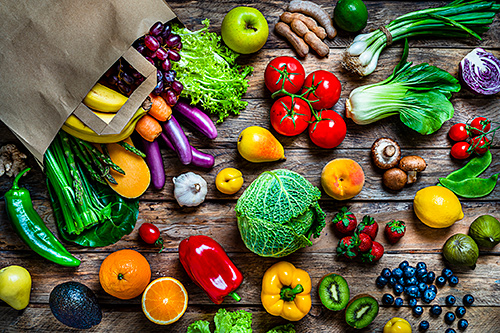
Article by
Food is a basic necessity of life. It provides us with the energy and nutrients that we need to carry out our daily tasks effectively. On the contrary, if the food and water are unsafe or contaminated, they are ideal vectors for the spread of diseases. Thousands of people die each year as a result of these food-borne illnesses, which impact millions of people worldwide. Despite advancements in science and technology, unsafe food remains the biggest health challenge globally. By implementing strict policies, methods, and procedures, developed countries have addressed this issue which has lowered the overall intensity of disease. Pakistan, on the other hand, is far behind.
Political instability, rising inflation, lack of awareness, weak health infrastructure, weather changes, and poor hygiene have aggravated this issue. Tons of people in Pakistan, especially children and elderly, get infected with foodborne diseases daily. If proper treatment is not given, these illnesses can be life-threatening too. This problem can be reduced or even prevented if we start practicing food safety at all levels of the food chain. From the farm(producer) to the fork(consumer). As a consumer we cannot ensure safe food at the upper levels of the food chain but we can carry out various steps at our homes that can eliminate the risk of food borne diseases. For this we need to understand the term ‘food safety’ which deals with the efficient handling, preparation, and storage of food that prevents foodborne diseases.
Although maintaining food safety is a complex task, there are five basic steps that we can carry out at home to ensure that the food we consume is safe and free from microbes.
1. Clean: The basic yet most important step is cleanliness. Anyone working or cooking in the kitchen should wear clean clothes, especially aprons. The nails should be cut and hair should be tied. Avoid wearing rings while kneading flour. Your hands contain multiple microbes that can spread diseases. The key is to properly wash your hands before and after cooking or preparing anything in the kitchen. Next, the kitchen or workplace should be clean. The floors, stoves, worktops, cutting boards, utensils, etc. should be properly washed and scrubbed. The kitchen should be free from any insects (flies) or rodents (mice) since they can spread diseases.
2. Separate: The biggest mistake that we usually make in the kitchen is not separating food items properly. Raw meat and poultry should be washed, prepped, and stored separately in bags or containers far from vegetables or fruits. The knives and cutting boards used for meat, vegetables, and fruits should be different. The juices in the meat are high in bacteria and can cause various illnesses if they drip over fruits and veggies. Moreover, the raw food should always be kept and stored away from the cooked food.
3. Cook: It is vital that the food, especially meat, poultry, and eggs, are cooked properly to kill bacteria. In the case of meat, it is essential that the meat is evenly cooked, especially from the inside. Raw meat can spread various diseases. For soups or curries, it is important to boil the mixture properly. When reheating food, it is essential to warm the food properly before consuming it. Food shouldn’t be reheated again and again.
4. Maintain Safe Temperature: Cooked food should not be kept outside at room temperature for more than 2 hours. The bacteria can multiply and contaminate the food. Foods, especially cooked, should be refrigerated properly below 5 degrees since refrigeration slows down the growth of microbes. Food shouldn’t be stored for too long in the fridge and it shouldn’t be microwaved again and again. Microwaved food shouldn’t be refrigerated or frozen. This leads to the risk of bacterial growth. 5. Use safe raw materials. It is important to use clean water for washing and cooking food. If you are unsure about the water, it is better to boil it before use. Try to select fresh produce (fruits and vegetables). They have low levels of microbes. Another mistake that we usually make is to use products beyond their expiration date. Products beyond their expiration date are harmful for your health. If we start incorporating these small steps into our life, it can drastically reduce the number of microorganisms that cause disease. The number of deaths from these diseases will also decrease. There will be no need for hectic hospital visits or expensive medicines. People will have a sustained life with good well-being that will promote a healthy, happy community.
 Monthly "Azeem English Magazine", launched in 2000, records the information about diverse fields like mental health, literature, research, science, and art. The magazine's objective is to impart social, cultural, and literary values to society.
Monthly "Azeem English Magazine", launched in 2000, records the information about diverse fields like mental health, literature, research, science, and art. The magazine's objective is to impart social, cultural, and literary values to society.
+92 51 88 93 092
First Floor, RAS Arcade, Eidhi Market, Street#124, G-13/4, Islamabad, Pakistan, 44000.